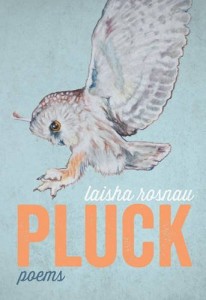Running the Whale’s Back:
Stories of Faith and Doubt From Atlantic Canada
Edited by Andrew Atkinson and Mark Harris
Goose Lane Editions
304 pages, $19.95
Reviewed by Jane Silcott
Running the Whale’s Back offers more than just complex and many-hued views of the uncertain territory between faith and doubt. It also offers a master class in short fiction. That’s not surprising when you see that it contains stories by many of Eastern Canada’s most celebrated authors including Alistair MacLeod, Kathleen Winter, Lynn Coady, Michael Crummey and many others.
The “class” begins with Michael Crummey, whose story “Miracles” includes a set of characters who play out the prismatic faces of belief, from the narrator’s passionate longing for miracles to his brother’s wholesale rejection, and their mother’s near military allegiance. The story twines the biblical and the secular through the narrator’s longing for some kind of connection. It includes some of my favourite images in the book, especially in the descriptions of the mother who, along with the Salvation Army Band, regularly “honked out metallic renditions of Christmas carols” on her silver trumpet and hummed “Onward Christian Soldiers” as she inflicted domestic order on her household.
In Kathleen Winter’s story, French Doors,” the central character Marianne rejects the inside world behind carefully-drawn curtains and walks out in the middens and woods where “women don’t walk anymore.” Winter’s sentences, lush and hypnotic, are like hymns calling our attention to the world outside our doors and away from screens. “All the days long the soul of the earth called out through the voices of the trees speaking in the hills, while the peat-and-needles-scented breath of the earth stole through the woods.” Marianne accepts an invitation from Larry, the only other person in the town who has “star-blood” in him. Together they sit in his truck and gaze at the path of moonlight on the sea and watch as sparks fly off it.
Where there are sparks, there’s also fire, and it seems in the beginning of the collection, at least, that it’s all about dire events: mine collapses, deaths, and other disasters. But other stories offer quieter communions: Deborah Joy Corey’s beautifully told tale about a young girl’s decision in “Discovery” where a woman calmly searches the riverbank for her lost grandbaby, while looking “like she’s listening to a far off message, something on the breeze.”
Alistair MacLeod’s story “Vision” feels like a tale from another time or world. It’s a long, slow unfurling where one story opens onto another, and we fall inside, not knowing where we’re going exactly, but having faith in the teller. Here, one of the central images of the story, the twisting and turning strands of the rope that pulls in the lobster traps, echoes the intertwining of the characters’ lives, curling and twisting around one another.
I hoped in reading a collection of stories about faith to come away from it with some new understanding. What is that notion that allows us to go up against death, or leap towards the unknown and survive to leap again, as the character in the title story does – jumping from one slippery, unstable piece of ice to another across a heaving and icy sea? But rather than some neat definition, I came away instead with the more nuanced and complex truth that there are as many interpretations of the word faith as there are people.
Among several other well-wrought stories in this collection (including Lynn Coady’s brilliantly elliptical “My Battered Heart” and Michael Winter’s “Stay the Way You Are,” Jessica Grant’s “My Husband’s Jump” stands out for its lighter-hearted tone. A story about a ski jumper who never lands, it takes the phrase “leap of faith” head on. “I lost a husband, found a deity,” she quips. Grant’s deliciously deft parsing continues to the end where she turns grammar into metaphysics: “But my husband’s jump was a verb, not a noun. Forever unfinished. What must it be like, I wondered, to hang your life on a single word? To jump. A verb ridden into the sunset.”
Jane Silcott is a writer, teacher, and editor living in Vancouver. Her most recent publication, “Cortical Folds,” appears in carte blanche magazine’s 10th anniversary issue.

